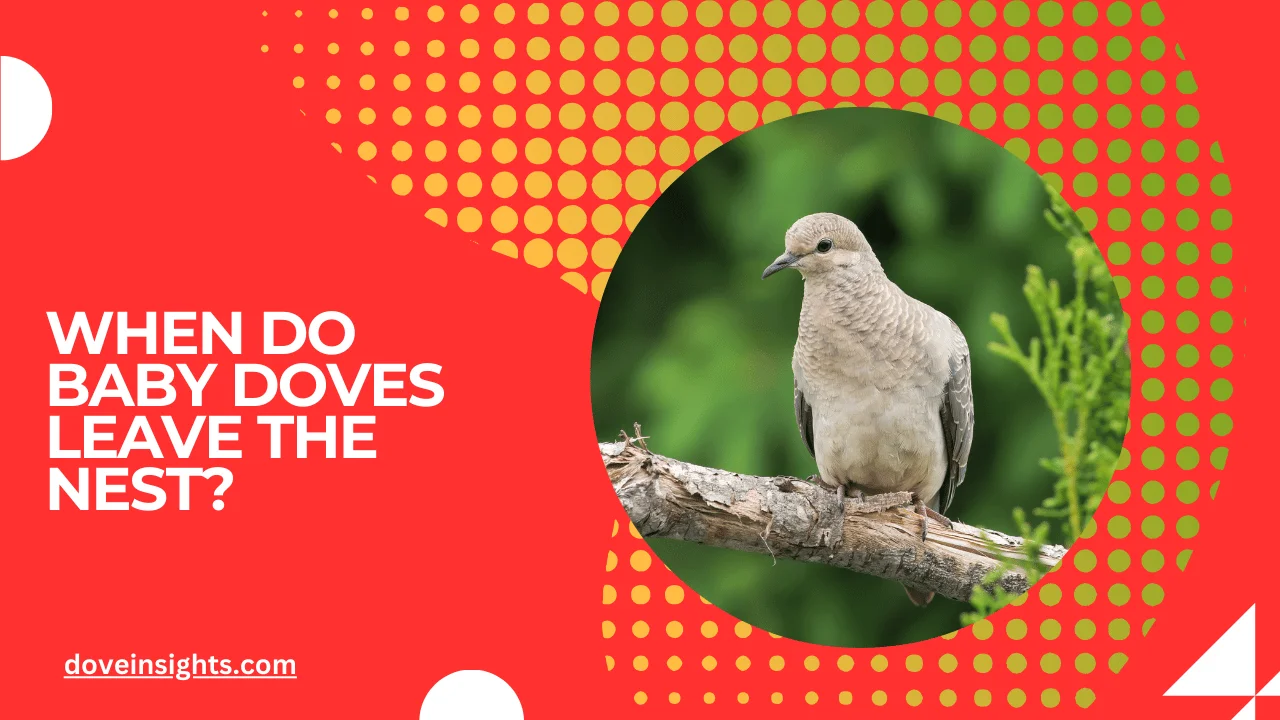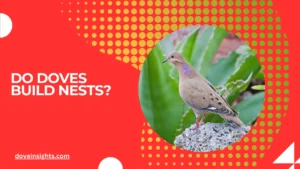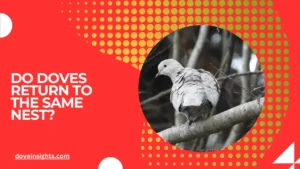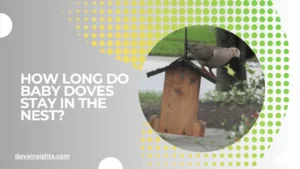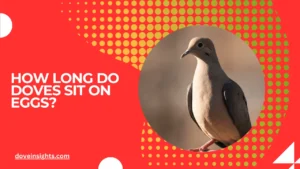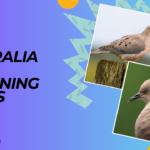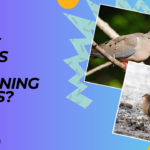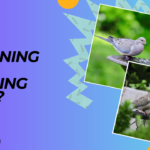When you think of a baby bird, it’s easy to imagine them leaving the nest in a flurry of feathers and newfound independence.
But how do baby doves, those peaceful and graceful creatures, transition from being tiny chicks in the nest to fully-fledged members of the avian world? It’s a question many bird watchers ask, especially when they spot a pair of doves nurturing their young in a cozy corner of their yard or nearby tree.
If you’ve ever wondered when and why baby doves leave the nest, you’re not alone. The process is more complex than it may initially seem, involving a delicate balance of instinct, protection, and preparation.
Understanding when baby doves leave the nest is more than just a curious inquiry; it’s essential for anyone interested in dove behavior, birdwatching, or even caring for wild birds.
Whether you’re observing a mourning dove, a rock dove, or a white-winged dove, each species has its own unique timeline for when its young take that first brave leap from the nest.
In this article, we will delve into the fascinating journey of baby doves from hatching to leaving the nest, and why this process matters to both the doves and the people who watch them grow.
In this article, we’ll explore the different stages of a dove chick’s development, from when they are hatched until they leave the nest.
We will also discuss the factors that influence their departure and the significance of this transition for the survival and growth of doves. Understanding this process will not only deepen your appreciation for these beautiful birds but also help you better understand how to support them in your own backyard.
Contents
- 1 The Stages of a Dove’s Early Life
- 2 How Long Do Baby Doves Stay in the Nest?
- 3 What Factors Influence When Baby Doves Leave the Nest?
- 4 The First Flight: How Do Baby Doves Learn to Fly?
- 5 The Role of Parents After the Baby Doves Leave the Nest
- 6 Conclusion:
- 7 FAQ’s
- 7.0.1 How long after hatching do baby doves leave the nest?
- 7.0.2 Do baby doves leave the nest all at once?
- 7.0.3 What happens to baby doves after they leave the nest?
- 7.0.4 Do baby doves return to the nest after leaving?
- 7.0.5 How can you tell when a baby dove is ready to leave the nest?
- 7.0.6 What should you do if you find a baby dove on the ground?
The Stages of a Dove’s Early Life
Before baby doves ever leave the nest, they undergo a series of fascinating developmental stages. When doves lay their eggs, it’s typically after a courtship period during which the male courts the female with a series of soft calls and ritualistic displays.
The female dove will lay one or two eggs, and incubation will begin shortly thereafter. Both parents take turns incubating the eggs, keeping them warm for 12-14 days.
Once the eggs hatch, the baby doves (also known as squabs) are initially blind, featherless, and helpless, completely dependent on their parents for survival. For the first few days of their lives, the parents feed them a special substance called “pigeon milk” or crop milk, a nutrient-rich secretion from the parent’s crop.
This unique form of feeding is crucial for their survival in the first stages of life.
Over the next several days, the baby doves begin to develop feathers and their physical strength. Around 7-10 days, they start to open their eyes and become more aware of their surroundings.
By two weeks, they can begin to stand, flap their wings, and start to explore the nest, preparing themselves for the next step—leaving the nest for the world beyond.
How Long Do Baby Doves Stay in the Nest?
Baby doves stay in the nest for about 12 to 18 days after hatching. During this time, both parents are incredibly attentive, ensuring the young birds are well-fed and safe.
The female dove generally does most of the brooding at night, while the male takes over during the day, keeping the eggs or chicks warm and protected from predators. This coordinated care helps the chicks grow rapidly.
By the time they’re two weeks old, the baby doves are growing feathers and are nearly ready to leave the nest. At this stage, they begin to exhibit signs of self-sufficiency, such as preening, stretching their wings, and exploring the immediate area around the nest.
However, they still rely heavily on their parents for food and protection. It is the gradual development of these skills that prepares them for their eventual departure from the nest.
What Factors Influence When Baby Doves Leave the Nest?
Several factors influence the timing of when baby doves leave the nest. One of the primary factors is the maturity and health of the chick. Doves, like all birds, need to be fully feathered, have sufficient strength to fly, and be able to regulate their body temperature before leaving the nest.
This means that healthier chicks may leave the nest earlier, while weaker chicks may stay behind a little longer. The parental care also plays a key role in this process. If the parents continue to provide for the chicks adequately, they will stay in the nest until they’re fully ready.
Another factor is environmental conditions. Doves that are raised in urban areas or in places with higher food availability might leave the nest a little earlier compared to doves in more remote, harsh environments where survival may be more difficult.
Predator presence, weather, and the availability of shelter all affect when baby doves feel comfortable leaving the nest. For example, if the nest becomes exposed to danger or disturbance, the chicks may be pushed to leave earlier than expected.
The First Flight: How Do Baby Doves Learn to Fly?
The first flight of a baby dove is a significant event in its life. Before leaving the nest, young doves undergo a series of wing exercises, stretching, and short glides from one perch to another, honing their flying skills.
This process is called fledging, and it’s a gradual one. Fledging usually happens at around 14-18 days old, although it can vary slightly depending on the species and the individual bird’s development.
The young doves might not fly immediately after leaving the nest, but their first flight is a crucial moment for their independence.
Once they take to the air, the fledgling doves are still not fully independent and rely on their parents for food and shelter. It is only after a few weeks, once they have gained enough strength and confidence, that they can fend for themselves completely.
The Role of Parents After the Baby Doves Leave the Nest
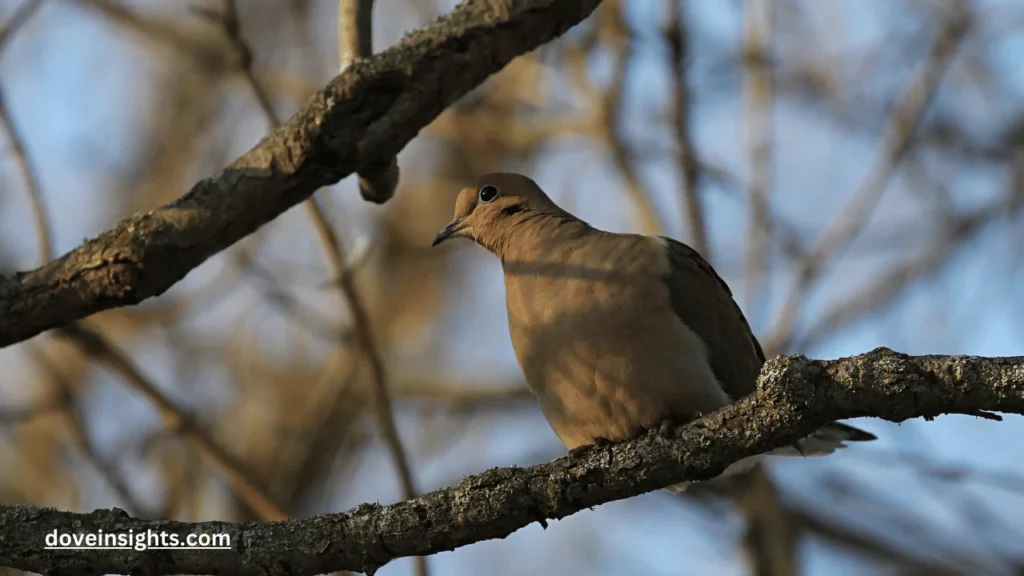
Even after the baby doves leave the nest, the parents continue to play an important role in their survival. The parents will often continue to feed the fledglings for a short period, especially if they are not yet adept at finding their own food.
While fledglings can fly short distances and may explore their surroundings, they still rely on the protection of their parents, especially at night. Mother and father doves are always close by, keeping an eye on their young and making sure they are safe from predators.
The role of the parents doesn’t end immediately after the fledglings leave the nest.
They will guide their young as they develop into independent adults, learning essential skills like finding food, recognizing predators, and building nests of their own in the future.
Conclusion:
In conclusion, the journey from nest to independence is an exciting and delicate process for baby doves. While it may seem like the baby doves leave their nests suddenly, it is actually the culmination of a carefully planned and gradual development process.
Understanding when and how baby doves leave the nest provides valuable insight into the life cycle of these beautiful birds. From the initial stages of life as tiny, helpless chicks to their first flights and eventual independence, the journey of a dove’s life is one of growth, nurturing, and exploration.
For bird enthusiasts, this process is not just an event to observe but a way to connect with the natural world around us.
By recognizing the signs that a baby dove is about to leave the nest and understanding the care it requires, we can better appreciate the vulnerable yet resilient nature of these remarkable creatures.
So, next time you spot a pair of mourning doves in your yard or a lone chick near a nest, you’ll know exactly when to expect them to take that leap into the world.
FAQ’s
How long after hatching do baby doves leave the nest?
Baby doves typically stay in the nest for 12 to 18 days after hatching. This period allows them to develop the necessary skills and strength to survive on their own. The exact timing can vary depending on the species, the health of the chick, and environmental conditions. Mourning doves, for example, usually fledge at around 14 days, while other dove species might take a little longer.
Do baby doves leave the nest all at once?
No, baby doves do not leave the nest simultaneously. Dove chicks tend to leave the nest individually as they grow stronger and more independent. Each chick may leave on its own schedule based on its development, with the parents continuing to care for any remaining chicks in the nest.
What happens to baby doves after they leave the nest?
After baby doves leave the nest, they are still dependent on their parents for a while. While they can fly, their flight abilities may be limited, so they might stay close to their parents for food and protection. The parents continue to feed and shelter them, gradually weaning them off reliance until they are capable of fully independent survival.
Do baby doves return to the nest after leaving?
No, once baby doves leave the nest, they do not return. However, they may still remain in the general vicinity of their parents for a short time, especially if they are still being fed. The nest serves as their initial home, but once they’ve fledged, they begin to explore and form their own territory or roosting spots.
How can you tell when a baby dove is ready to leave the nest?
You can tell a baby dove is ready to leave the nest when it shows signs of fledging—such as flapping its wings, attempting short flights, or becoming more curious about its surroundings. At this stage, the chick will also start to develop full feathers and lose reliance on its parents for warmth and care. The chick may still be dependent on food from the parents but will gradually gain confidence to leave the nest.
What should you do if you find a baby dove on the ground?
If you find a baby dove on the ground, it may be in the early stages of fledging. It’s important not to panic or immediately move the bird. If the chick is fully feathered and showing signs of fledging, it’s best to leave it alone and observe from a distance to ensure the parents are nearby. If the chick appears in immediate danger or injured, contact a local wildlife rehabilitation center for advice.

